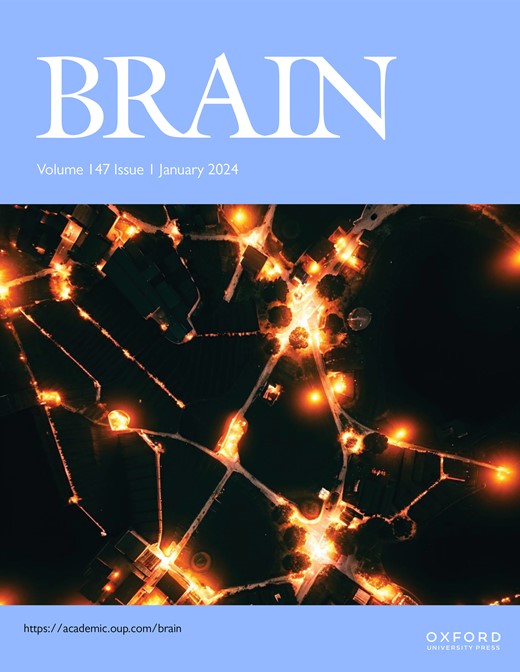女性癫痫患者叶酸缺乏:一项范围审查。
IF 11.7
1区 医学
Q1 CLINICAL NEUROLOGY
引用次数: 0
摘要
叶酸缺乏与母体和后代不良健康结果的风险增加有关。本综述旨在回顾癫痫女性叶酸缺乏的现有证据,特别是叶酸补充剂使用不足的潜在原因和确定的预测因素。我们使用PRISMA扩展来进行范围审查。我们检索了Medline, Embase, EBM评论和所有Ovid期刊中关于女性癫痫患者叶酸状态/FA使用的研究报告。在审查的3778个项目中,确定并纳入了105篇相关文章。许多报告表明叶酸缺乏在女性癫痫患者中很常见。叶酸缺乏的常见诱因包括饮食摄入不良、FA使用不足、遗传易感性、不良的强化政策、抗癫痫药物、需求增加、慢性炎症、生活方式因素和缺乏咨询。癫痫女性服用FA的比例很低,超过一半的女性在怀孕前不服用补充剂。FA使用不足的预测因素包括意外怀孕、低教育水平、低社会经济地位、少数民族、缺乏咨询、年龄小、没有抗癫痫药物接触以及对其使用的担忧。目前的做法需要调整,以便在癫痫妇女中建立足够的叶酸浓度,而不是最低的叶酸浓度,以防止不良后果。一刀切似乎不合适;叶酸摄入应个体化,并根据叶酸水平和其他代谢生物标志物进行调整,以达到充足的叶酸状态。癫痫妇女叶酸缺乏可能反映了护理方面的差异,并与若干健康社会决定因素有关。尽管最近在了解女性癫痫患者叶酸缺乏症方面取得了潜在进展,但在知识方面仍存在重大差距,需要进一步开展工作。叶酸缺乏在女性癫痫患者中很常见。叶酸缺乏的原因是多因素的,需要意识到,早期识别,适当的干预和定期随访,以保持足够的叶酸水平。建立一个足够的,而不是最低的叶酸浓度,以防止不良后果是必要的。需要做更多的工作来了解癫痫妇女叶酸缺乏的机制,并制定最佳的干预策略。本文章由计算机程序翻译,如有差异,请以英文原文为准。
Folate deficiency in women with epilepsy: a scoping review.
Folate deficiency is associated with increased risks of adverse maternal and offspring health outcomes. This review aimed to review the available evidence on folate deficiency among women with epilepsy, particularly potential causes and identified predictors of inadequate folic acid (FA) supplement use. We conducted this review using the PRISMA extension for scoping reviews. We searched Medline, Embase, EBM reviews and all Ovid journals for studies reporting on folate status/FA use in women with epilepsy. Of 3778 items reviewed, 105 relevant articles were identified and included. Many reports suggest that folate deficiency is common among women with epilepsy. Common triggers for folate deficiency include poor dietary intake, inadequate FA use, genetic susceptibility, poor fortification policies, antiseizure medications, increased demands, chronic inflammation, lifestyle factors and lack of counselling. The prevalence of FA use among women with epilepsy is low, with more than half not taking supplements before conception. Predictors of inadequate FA use are unplanned pregnancy, low educational achievement, low socio-economic status, being part of an ethnic minority, lack of counselling, young age, no antiseizure medication exposure and concerns about its use. Current practice needs adjustments towards establishing an adequate, rather than minimal, folate concentration in women with epilepsy to prevent adverse outcomes. One-size-fits-all seems inappropriate; folate intake should be individualized and adjusted to achieve adequate folate status based on folate levels and other metabolic biomarkers. Folate deficiency in women with epilepsy may reflect disparities in care and links to several social determinants of health. Despite the potential progress recently achieved in understanding folate deficiency in women with epilepsy, there are still significant gaps in knowledge requiring further work. Folate deficiency is common among women with epilepsy. The causes of folate deficiency are multifactorial, and awareness, early recognition, proper intervention and regular follow-ups are required to maintain adequate folate levels. Establishing an adequate, rather than minimal, folate concentration to prevent adverse outcomes is imperative. More work is needed to understand the mechanisms of folate deficiency in women with epilepsy and to develop the optimal intervention strategies.
求助全文
通过发布文献求助,成功后即可免费获取论文全文。
去求助
来源期刊

Brain
医学-临床神经学
CiteScore
20.30
自引率
4.10%
发文量
458
审稿时长
3-6 weeks
期刊介绍:
Brain, a journal focused on clinical neurology and translational neuroscience, has been publishing landmark papers since 1878. The journal aims to expand its scope by including studies that shed light on disease mechanisms and conducting innovative clinical trials for brain disorders. With a wide range of topics covered, the Editorial Board represents the international readership and diverse coverage of the journal. Accepted articles are promptly posted online, typically within a few weeks of acceptance. As of 2022, Brain holds an impressive impact factor of 14.5, according to the Journal Citation Reports.
 求助内容:
求助内容: 应助结果提醒方式:
应助结果提醒方式:


